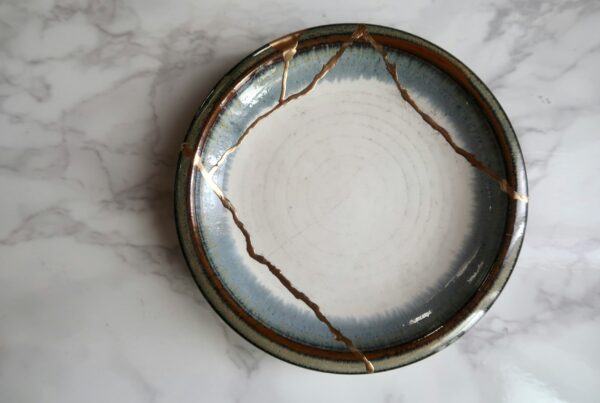There’s a quiet pressure most of us feel these days, even if we don’t talk about it. It hums beneath our daily scrolls and self-promotion: the pressure to perform, to curate, to be “on brand.” Whether it’s our job, our parenting, our faith, or our feed, we start to feel like we have to become a polished version of ourselves, of the smiling, successful, and certain variety.
But let’s be honest: that’s not real life.
Somewhere along the way, “be yourself” got twisted into “be the best version of yourself at all times.” And if you’re anything like me, you’ve felt the strain of trying to live up to the image. I’ve found myself answering “How are you doing?” with “Good!”—when actually, I was numb, distracted, and anything but good. I’ve taken on roles I wasn’t gifted for because I didn’t want to disappoint. I’ve posted wins and buried losses.
Pretending is exhausting. And even worse, it can keep us from growing.
The Problem with “Fake It Till You Make It”
Let me say it straight: I’ve faked it. I’ve walked into rooms I wasn’t ready for, nodding along to things I didn’t understand, afraid to ask dumb questions. I’ve said yes when I should have said “I don’t know.” I’ve smiled through anxiety and laughed past burnout. “Fake it till you make it” sounds like resilience, but more often it’s just fear in a costume.
The thing is, pretending delays growth.
When I was first asked to lead a small group, I felt completely underqualified. Instead of being honest about my nerves, I put on a confident face and pushed through. The group didn’t go horribly, but I missed something important: the chance to ask for help, to grow in community, to be teachable. God doesn’t expect a performance; he doesn’t need us to entertain him. He expects honesty.
The brother of Jesus, James, says “God opposes the proud but gives grace to the humble” (James 4:6). That’s not just about arrogance; it’s about pretense. Grace flows not to the person pretending to have it all together, but to the one who willingly accepts that they don’t.
When we drop the act, we make space for God to meet us right where we are, instead of where we wish we were.
The Authenticity of Jesus
I used to think authenticity meant putting everything out there all the time. But that’s not what we see in Jesus.
Jesus wasn’t flashy. He didn’t promote himself. He didn’t chase influence or spin PR. He told people the truth about who he was and what he came to do, and when the crowd didn’t like it, he didn’t change the message to fit the moment. He met the moment in humble honesty.
He knew his purpose and limits. He said, “I can do nothing on my own” (John 5:30). Think about that: the Son of God saying he couldn’t act apart from the Father. That’s real humility. That’s real authenticity. How often do we allow our ego to get the better of us over matters that are so small that we forget all about them as time moves on? Yet, Jesus did not think too little or too much of himself.
Jesus didn’t burn out trying to meet every need. He withdrew to pray. He took naps on boats. He allowed himself to need rest, solitude, and help. That’s a model worth following.
Being honest about our limits isn’t weakness, it’s wisdom.
Serving Without Wallowing
When I’m stuck in my own head, feeling like an imposter in my family, job, or faith, one of the best things I can do is get over myself and help someone else. But here’s the key: not to impress, not to fix, just to help where I can.
Jesus washed his disciples’ feet. Not because he needed to prove something, but because he loved them. “Now that I, your Lord and Teacher, have washed your feet, you also should wash one another’s feet” (John 13:14). There’s something grounding about doing small, unseen things for others. It gets us out of our own story and into someone else’s, and that’s where the good stuff of life is waiting.
I’ve found healing in simple acts like, dropping off a meal, writing a note (or even better putting a letter in the mail to a friend), showing up for a friend. Not because I had something perfect to offer, but because that’s what Jesus did and I want to be more like him.
Let Your Body Remind Your Soul
Some days, the best thing I can do for my soul is take a walk outside. I know that might seem a little random but hang with me here.
There’s something about being in a place that makes me feel small, in the best way. A trail in the woods, a long road with no phone signal, a sunrise over water. These are reminders that I am not the center of the universe. And that’s good news.
When I move my body, when I breathe deep, when I sweat a little, when I get away from screens I start to remember the truth: I’m limited, but I’m loved. I don’t have to be everything. I just have to be here.
“Be still and know that I am God” (Psalm 46:10) isn’t just about physical stillness, it’s about stilling the storm of self-promotion and proving. It’s choosing to be with God, here and now.
One Day at a Time
Here’s the truth I’m learning, one slow step at a time: A humble, honest life is far more freeing than a perfectly curated one.
So today, don’t fake it. Don’t posture. Don’t hide your need. Be honest. Be humble. Ask for help. Admit weakness. Let someone pray for you. Say “I don’t know.” Serve someone without needing credit. Step outside and feel your smallness. Trust that God meets you there.
That’s where real growth happens.
A Life Lived Honest and Humble
Imagine a life where you’re no longer performing for approval but walking in peace. A life where your worth isn’t built on success, but on grace. A life where your limits are not liabilities, but invitations to depend on God, to be known by others, and to serve freely.
You don’t need all the answers. You just need to show up, honestly.
So go ahead, step outside, breathe deep, drop the act, and take the next step. Humility isn’t weakness. It’s the door to the kind of life your soul was made for.
By Brandon Gilliam










